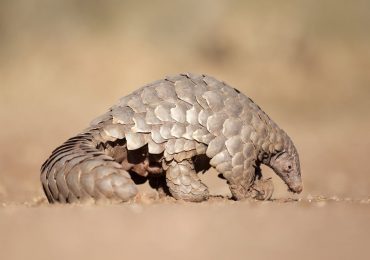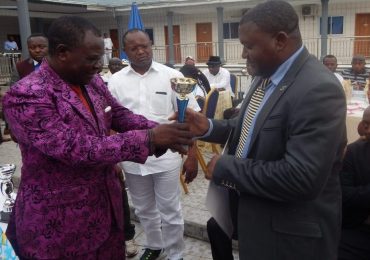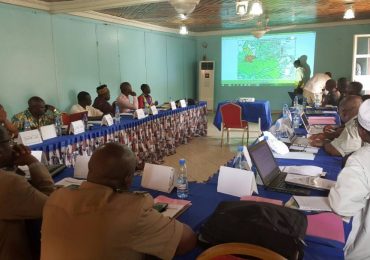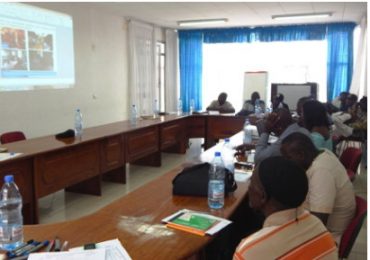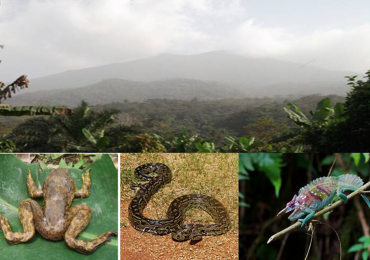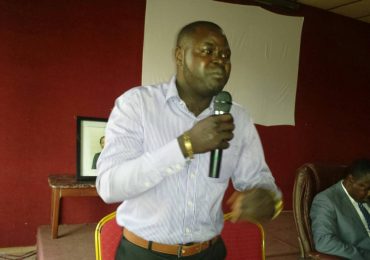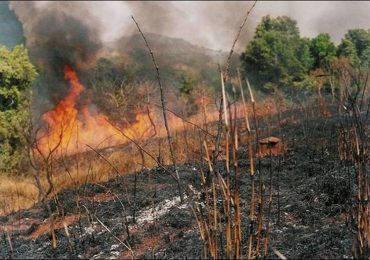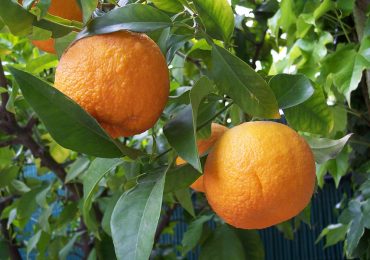The contemporary world has, since the turn of the 20th Century, been the scene of an unremitting spate of ‘assaults’ on natural resources, events which have encouraged unmitigated destruction of the environment and its species of plants and animals.
Given the continuous escalation of reckless exploitation of the environment, much of the world lost most of its forests, clean water sources, minerals. With no need to conserve in the past, the land and its resources were unsustainably exploited, leaving behind some animal species diminished and declining soil fertility.
The legacy of unsustainable exploitation of natural resources has left the world much worse for wear, terminating in the strange behaviour of climatic patterns, low socio-economic development and abject poverty. Poverty and sheer underdevelopment in some parts of the world have tended to accelerate natural disasters such as desertification, soil erosion and degradation. These have left some 200 million Africans face to face with acute malnutrition and sometimes starvation. With a disadvantaged position in the world economy, such conditions of extreme poverty naturally lead to political instability as competition for scarce resources increases.
Generally, frantic attempts are being made to reverse the unfavourable order of things in our scarred environment.
Periodically thrust into the glare of the public by dramatic events, Africa has attracted its fair share of environmental degradation with huge portions of its forests, land and animal and plant species ruined. From time to time, the continent finds itself forgotten in the grip of diverse problems; the population living precariously between bloody wars, drought, desertification and hunger, with women and children in particular living on unimaginable levels of poverty and misery. The icing on this cake of paucity is the inadequacy of internal road transport infrastructure; perhaps one of the most important impediments to Africa’s development. And in the armpit of this great continent, hangs the triangle called Cameroon – a target for vast environmental destruction.
Sure, land is relatively abundant and cheap in Cameroon’s rural areas, though it may not feel that way at the productivity point. The problem is the communities’ seemingly insatiable appetite for more farmland and forest products just won’t quit.
It is impossible to explain in a few simple sentences the causes of the environmental turmoil that have savaged Cameroon. The causes cannot be reduced to the mere fact of profound exploitation. Cameroon happens to be one of the most retarded areas in development in Africa, having been a victim of a shattering combination of maladies: external debts of unimaginable dimensions, capital flight, mismanagement of national economies and corruption compounded by lack of accountability. Such a combination soon became harsh and vicious to the natural environment and its degradation can only be measured in terms of huge losses of forests and animal and plant species. But despite the shocking scenario, it is comforting to learn that some NGOs have promoted a certain form of community wellbeing and tried to tackle certain specific problems of the environment and livelihoods.
For the past 15 years, , the Environment and Rural Development Foundation (ERuDeF) has been leading the way to more environmentally and species-friendly future. It has played, and continues to play, a vital role in the conservation of the environment and some of its species of living things. ERuDeF has worked to augment government efforts in the provision of crucial services to the public especially in the Cameroon mountains region in such fields as wildlife conservation and regeneration of degraded landscape. It can be said that ERuDeF has made considerable impact because of the advantages it enjoys in that it can easily reach the target group, mainly the rural poor, because of its lack of bureaucracy and independence of decision. Another advantage ERuDeF enjoys is it has greater experience as it usually works for specific groups or areas for so long that its accumulated experience contributes to better performance and results. In addition, it is better equipped and particularly partnered with devoted international partners.
ERuDeF also seems to be having greater impact because it uses the new methods of development and conservation, which emphasise community participation and the nurturing of local capacity easier for it to apply since it usually works for specific localities and because it is less bureaucratic and has a high potential for innovation. Furthermore, ERuDeF as a non-profit organisation, is more cost-effective, responds more quickly to emergencies and grassroots needs and more importantly needs not to wade through cumbersome red tape bureaucracy to implement its projects. On the whole, it involves communities in its projects hence, executes community-based projects to ensure sustainability.
ERuDeF and her partner Trees for the Future have transformed the ugly face of agribusiness by getting farmers to reap impressive crop yields with fewer chemical inputs and more natural manure. Maize, yams and pineapples are among the crops grown side by side with soil-regeneration species such as acacia, calliandra, luceina, Prunus africana.
ERuDeF found its best moments in the forests of Lebialem in the South West, the degraded landscapes of Mt. Bamboutos, the slopes of Mt. Cameroon in Fako Division, denuded of once bountiful populations of hardwood species like Zebra wood, mahogany, iroko, and medicinal plants such as Pegyum (Prunus Africana), country onion (afrostyrax lepidophyllus), drummer stick (ewomba). Because of its resolve, many communities in degraded landscapes have planted hundreds of thousands of trees, thanks to ERuDeF’s partnership with Flora & Fauna International UK. Farmers are quickly picking up agro-forestry and forest gardening with the help of Trees for the Future, and Man & Nature has supported a far-reaching programme for alternative sources of livelihood in Lebialem Division where ERuDeF pioneered and championed the gazettement of a wildlife sanctuary; a chevron on its sleeve, for its relentless fight for the protection of the endangered Cross River gorilla. ERuDeF and Man & Nature also started the access benefit sharing (ABS) programme to ensure that communities benefit from their natural resources while ensuring sustainability.
From 2015, ERuDeF has not redesigned its wildlife conservation programme, but has only fine-tuned its lens to focus more sharply on endangered species and ecosystems for them to receive permanent attention and protection from populations for a sustainable co-existence.


